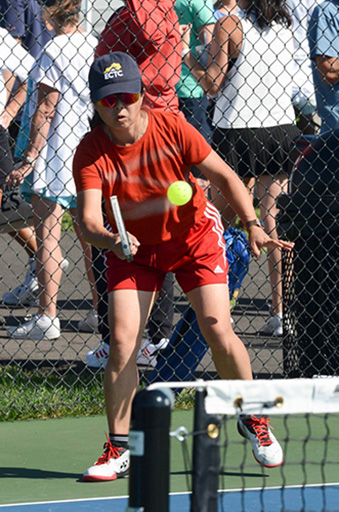
Should you serve first in a pickleball match?
Published on Sep 10, 2024
 Photo courtesy of Ed Sherrard
Photo courtesy of Ed Sherrard
Miky Wright, a distinguished faculty member in the math department at Elizabethtown Community and Technical College, and William Figary, an engineer from Elizabethtown, have achieved national recognition with the publication of their article by the renowned Mathematical Association of America (MAA).
Titled "Should You Choose to Serve First in a Pickleball Match? — MATH VALUES," the article delves into the statistical factors that influence pickleball matches, offering valuable insights for both players and enthusiasts of the sport. This research advances the understanding of sports analytics and exemplifies ECTC's dedication to academic excellence and community engagement.
Wright, founder of Twin Lakes Pickleball in Leitchfield, seamlessly integrates her passion for mathematics and pickleball, contributing to her field and the local sports community.
“I've been playing pickleball with passion for the past two years, competing in several tournaments. The title of this study has been on my mind,” Wright said. “I've always assumed there was a benefit to serving first, but is there any statistical evidence? As a math instructor who's been teaching statistics for almost a decade, I needed to find out.”
Wright thanked her ECTC colleagues Melanie Figary, Joe Galloway and Navin Madras for their assistance in refining the article.
"Having recently gotten into playing pickleball, I was intrigued by this question Miky proposed,” said William Figary. “I love using math and programming to discover optimal strategies in other games, so I was excited to see where this exploration led us. While some of the outcomes were expected, there were also some surprises along the way that left me very satisfied with what we had accomplished."
The article is available at mathvalues.org/masterblog/should-you-choose-to-serve-first-in-a-pickleball-match.
